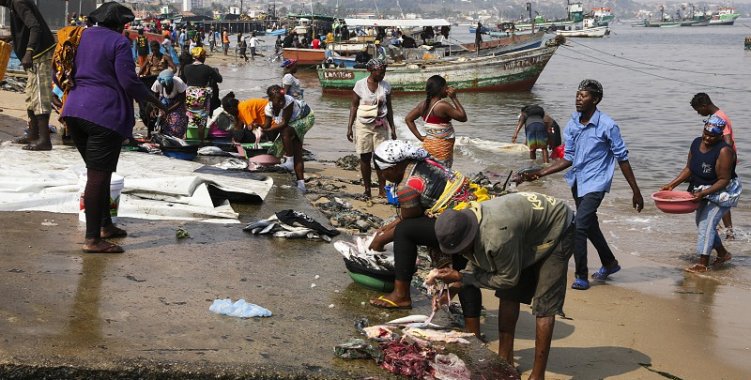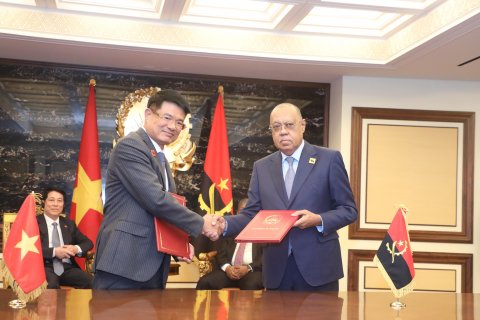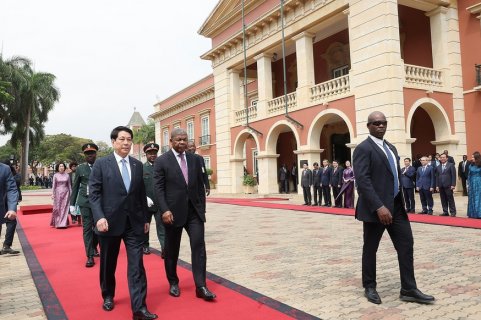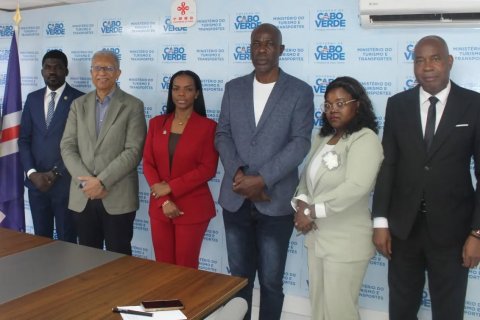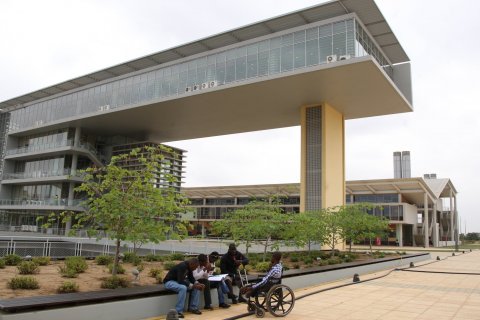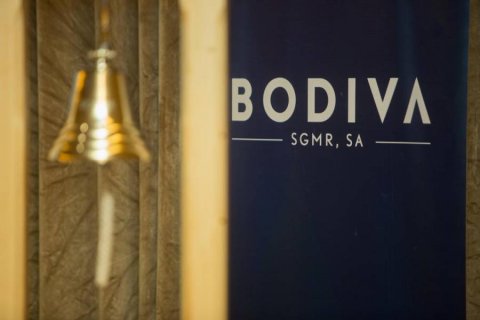The scene of dozens of paralyzed boats is visible on the well-known beach of Mabunda, in the urban district of Samba, in Luanda, where the few that go to sea say they have doubled their costs and increased the price of fish to compensate for the activity.
There are few fishing vessels that can resist the current price of gasoline, whose liter has cost 300 kwanzas since 2 June, almost double the previous 160 kwanzas, say operators in the sector, fearing unemployment for many.
"It's complicated, because we have big barges at sea and, in the past, they took four or five 200-liter drums and now it's complicated, so you have to reduce the drums. Only yesterday for today the fuel from four drums almost reached 400,000 kwanzas", said Cláudio José.
The person in charge of one of the vessels still operating in Mabunda realized that it was now costing twice as much in fuel alone, compared to the previous period, having criticized the measure taken by the authorities and the lack of subsidized cards, which allow certain professional classes to supply themselves paying the previous price.
"The sale of fish went up a little, but when there is a lot of production, the price remains like the previous one. This measure did not come at the right time because it really complicates the work", added Cláudio José, who has been in the activity for a year and a half.
The Government announced the gradual withdrawal of gasoline subsidies, maintaining the subsidy to taxi drivers, motorcycle taxi drivers and the agricultural and fishing sector, promising subsidized cards to operators.
The cards subsidized by the State "never" reached the fishermen of Mabunda, António Miguel, 38, told Lusa, realizing that the activity became "complicated" with the rise in price.
"We who have a vessel, have the license and are waiting for the (subsidized) card, because they said it would be direct access, but so far we have nothing", he lamented.
In the activity for 20 years, the fisherman also spoke of the negative impacts of the increase in the price of gasoline for the mobility of vessels, noting that he is now buying 112 liters for 333,600 kwanzas for his small vessel.
On the other hand, the price of fish is conditioned to the existing offer, he said, still lamenting the difficulties of many colleagues to keep the vessels in activity.
"This is really affecting a lot, because some (vessels) after the fuel increase are not getting out, not everyone has the same condition to get the vessel out", he pointed out.
Nuno Gomes, a fishing owner in that coastal area of Luanda, criticized the authorities' measure, saying that the end consumer of the fish is also paying for it, now spending 5,000 kwanzas to buy five swordfish, against the previous 2,500 kwanzas for the same amount.
The shipowner, with more than 10 years of activity, also spoke of the negative consequences: "Some are managing to resist and others are stopping due to this measure that the government has adopted".
"I think that the Government, before increasing the fuel, should provide us with the cards, they say that we would be entitled to the cards, but the fuel went up on the 2nd and today is the 21st and, so far, nothing has been said about the cards" , criticized.
Paying 300 kwanzas for a liter of gasoline, Nuno said that "there is no way the fish can be sold cheaply" and many have already given up working.
"Yes, many are stopped and this is also reflected in society, the level of crime here in this neighborhood of Mabunda has increased, there is a lot of theft of fish and the situation is really bad", he shot.
The lack of subsidized cards for Mabunda fishermen was also criticized by Sebastião Francisco, a 67-year-old fisherman, considering that the "promises" of the authorities were just that.
"Day-to-day life right now is bad, because the bottle that used to be bought for 10,000 kwanzas is now 15,000 kwanzas (50 liters) and they promised the cards, but until today we don't see the cards. They only gave it to two people as propaganda," he noted.
Sebastião Francisco, who says he got into the activity when he was still a child, also referred to the difficult situation faced by fishermen, noting that "many vessels are stopped today".
"They are no longer able to buy fuel and when they do get some fish, it doesn't even make up for the expenses of the activity", he shot.
By the sea, the search for fish in Mabunda, especially from individuals and even "zungueiras" (street vendors) is intense.
After buying the fish, and with the support of some young people who work there, many deal with the fish right there, without any hygiene and safety conditions, making Mabunda a huge garbage square.

